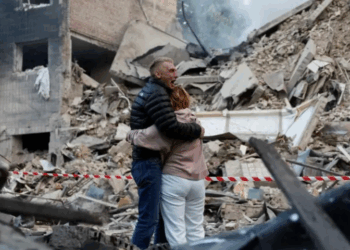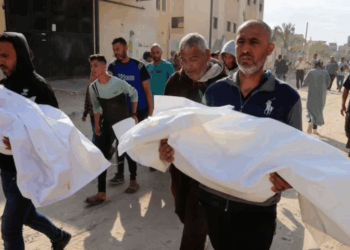Tehran/Jerusalem/Washington, June 18, 2025: The Iran–Israel conflict intensified dramatically over the past 12 hours, with both nations launching fresh strikes and issuing increasingly threatening statements, pushing the region closer to the brink of a broader war. Civilian casualties are rising, diplomatic channels remain frozen, and global powers are urging immediate de-escalation.
In a direct escalation, Iran launched a new wave of ballistic missiles and advanced drones targeting Israeli cities, including Tel Aviv and Jerusalem, early Wednesday morning. The barrage, described by Iranian officials as “the beginning of bitter revenge,” killed at least three Israeli civilians and injured dozens more, despite most of the incoming projectiles being intercepted by Israel’s Iron Dome defense system.
Iranian state media hailed the attack as a “measured response” to repeated Israeli bombings of Tehran over the past week. This marks the most direct Iranian strike on Israeli territory since the conflict began.
In response, Israel launched its sixth consecutive night of air raids on Tehran, hitting strategic military installations, suspected nuclear sites, and infrastructure linked to the Iranian Revolutionary Guard Corps (IRGC). Among the key targets were suspected centrifuge production facilities near Natanz, missile storage depots, and airbases around Tabriz.
Local Iranian sources report extensive power outages, fuel shortages, and panic among civilians. Over 239 civilians are now confirmed dead in Iran, with the total death toll rising to over 580 in just six days of sustained conflict.
Leadership on both sides has continued to issue aggressive and uncompromising statements:
- Iran’s Supreme Leader Ayatollah Ali Khamenei warned, “The battle has only just begun. A bitter and painful fate awaits Israel. If the United States interferes, it will face consequences it cannot imagine.”
- Iranian President Masoud Pezeshkian described the Israeli strikes as “criminal acts” and promised a “strong, wise, and severe” retaliation.
- Israeli Prime Minister Benjamin Netanyahu, addressing the nation, stated: “These strikes are necessary to prevent Iran from achieving nuclear breakout. We will continue for as long as needed to ensure the safety of Israel.”
- U.S. President Donald Trump entered the fray with an unambiguous message to Tehran: “Iran must accept unconditional surrender. We know where Khamenei is—we are not targeting him yet, but nothing is off the table.”
Trump has also ordered additional U.S. naval deployments to the Eastern Mediterranean and Arabian Sea, signaling Washington’s readiness to back Israel militarily if needed.
Tehran, once bustling, is now witnessing mass evacuations. Thousands of families have fled the capital amid fears of further Israeli strikes. Civil services are stretched, shops remain closed, and fuel scarcity is spreading.
Meanwhile, several countries — including China, Greece, and Pakistan — have begun evacuating their nationals from Iran. Humanitarian organizations warn of an unfolding crisis, with basic supplies dwindling and hospitals overwhelmed.
The United Nations, European Union, Turkey, Russia, and China have all called for restraint. The International Atomic Energy Agency (IAEA) has confirmed limited damage to Iranian nuclear facilities but warned that continued targeting of such sites risks “regional catastrophe.”
Despite diplomatic urgings, neither side appears willing to back down.








